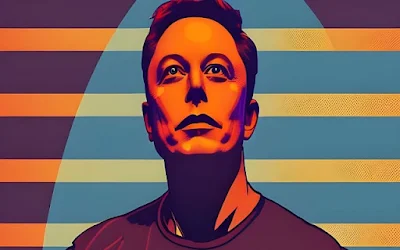Elon Musk claims artificial intelligence has reached its limit and reveals the technology that will take its place

After declaring on his social media platform X that artificial intelligence is reaching its limits, Elon Musk has returned to the public eye. According to Musk, the traditional AI model, which relies on massive amounts of human data, is doomed to fail.
In his speech, he stressed that the amount of human knowledge available to feed these systems is limited. “Ultimately, biological intelligence will account for less than 1% of the total,” the businessman added. This comment not only points to the potential superiority of machines but also to the need to rethink how we develop intelligent technologies.
For Elon Musk, the main problem is relying on human data to power AI. The language models that power many modern AI systems require massive amounts of data to work, and Musk says that approach is unsustainable in the long run.
He also pointed out that the flaw lies not only in the data but also in the technology architecture. “If AI is fragile in any way, then silent circuit boards won’t work well in the open,” he said, noting that current hardware is also not up to expectations.
This diagnosis raises questions about the ability of traditional AI to develop efficiently and independently. According to the business mogul, reliance on human data limits the potential of these technologies, and it is time to bet on a radically different alternative.
Musk’s solution is revolutionary: developing AI systems that learn from artificial data. Instead of relying on human-generated information, machines will generate and evaluate their own data, allowing for more autonomous development and less reliance on external resources.
“It’s time for AI to self-qualify and self-learn,” the entrepreneur said in a recent conversation with analyst Mark Bean on X. This proposal isn’t exactly new, but it’s gaining momentum fast.
Technology research firms like Gartner estimate that by 2024, 60% of the data used to train AI will be synthetic, suggesting that this approach is no longer just a theory.
Some companies have already begun implementing this method, which reinforces the idea that synthetic data may represent the next big leap in the evolution of artificial intelligence. Musk firmly believes that this change is inevitable if we are to overcome current limitations.
The billionaire’s statements are both exciting and skeptical. While some experts see synthetic data and self-learning as an opportunity for AI, others warn of the potential ethical and technical risks of allowing machines to become completely self-sufficient.
